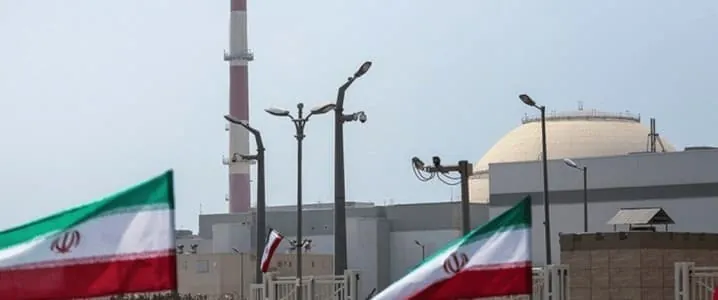
Is Israel Holding Off Against Iran Until After the U.S. Elections?
2024-10-07
Author: Sophie
As tensions between Israel and Iran escalate, the recent missile attacks from Tehran have heightened concern among international observers. The latest incident, on October 1st, saw Iran launch 181 missiles targeting Israel, prompting speculation about Israel's next strategic move.
A critical question arises: why hasn't Israel neutralized Iran's nuclear facilities, which pose a significant threat not only to Israel but also to its allies? The answer may lie in timing and calculations surrounding international geopolitics, particularly the upcoming U.S. elections. The International Atomic Energy Agency (IAEA) has recently reported that Iran possesses enough fissile material to potentially create at least three nuclear warheads, a looming concern corroborated by U.S. intelligence sources who suggest that Iran could finalize its weapons designs within nine months.
Adding complexity to this situation is the emerging partnership between Iran and Russia, which could expedite Iran's nuclear ambitions. While Israel and the U.S. have an extensive understanding of Iran's nuclear sites, including facilities at Natanz, Fordow, Esfahan, Arak, Parchin, Qom, and Bushehr, they face logistical challenges in executing a successful airstrike on these well-fortified targets, often located deep underground.
Assisting Israel's military strategy is Azerbaijan, which has become a crucial ally in the region. Closer ties between the two nations have allowed Israel to use Azerbaijani airspace as a route for potential airstrikes against Iranian targets. Previous military support from Israel helped Azerbaijan in its conflicts over Nagorno-Karabakh, further strengthening their alliance.
Despite these advantages, the execution of such a mission requires advanced munitions capable of penetrating deep underground facilities, and Israel's preparedness for a retaliatory strike from Iran and its proxies complicates the landscape. Any military action against Iran's nuclear capabilities inevitably risks escalating into broader conflict, particularly with Iran's missile capabilities posing an immediate threat to Israeli defenses.
Current U.S. President Joe Biden remains opposed to a preemptive strike on Iran, echoing sentiments held during the Obama administration. Such a military action could provoke Iranian retaliation not only against U.S. forces in the region but also against civilian targets worldwide, dramatically destabilizing the geopolitical climate.
In stark contrast, former President Donald Trump's views on the matter champion a more aggressive approach to dealing with Iran's nuclear threat, suggesting that the lack of action could allow Iran to gain nuclear capabilities sooner than anticipated. This ideological divide is fueling speculation that Israel may choose to delay any military operations until after the U.S. elections in hopes of a more favorable administration under Trump, who has proclaimed that the primary risk lies in the impending nuclear threat from Iran.
As Israel weighs its options, the outcome of the upcoming U.S. elections could very well determine the trajectory of its military strategy against Tehran. Will Israel make its bold move against Iran's nuclear facilities soon, or will it bide its time, awaiting the results of the elections? The international community watches closely, as the repercussions of this strategic decision could reshape the Middle East for years to come.









 Brasil (PT)
Brasil (PT)
 Canada (EN)
Canada (EN)
 Chile (ES)
Chile (ES)
 España (ES)
España (ES)
 France (FR)
France (FR)
 Hong Kong (EN)
Hong Kong (EN)
 Italia (IT)
Italia (IT)
 日本 (JA)
日本 (JA)
 Magyarország (HU)
Magyarország (HU)
 Norge (NO)
Norge (NO)
 Polska (PL)
Polska (PL)
 Schweiz (DE)
Schweiz (DE)
 Singapore (EN)
Singapore (EN)
 Sverige (SV)
Sverige (SV)
 Suomi (FI)
Suomi (FI)
 Türkiye (TR)
Türkiye (TR)